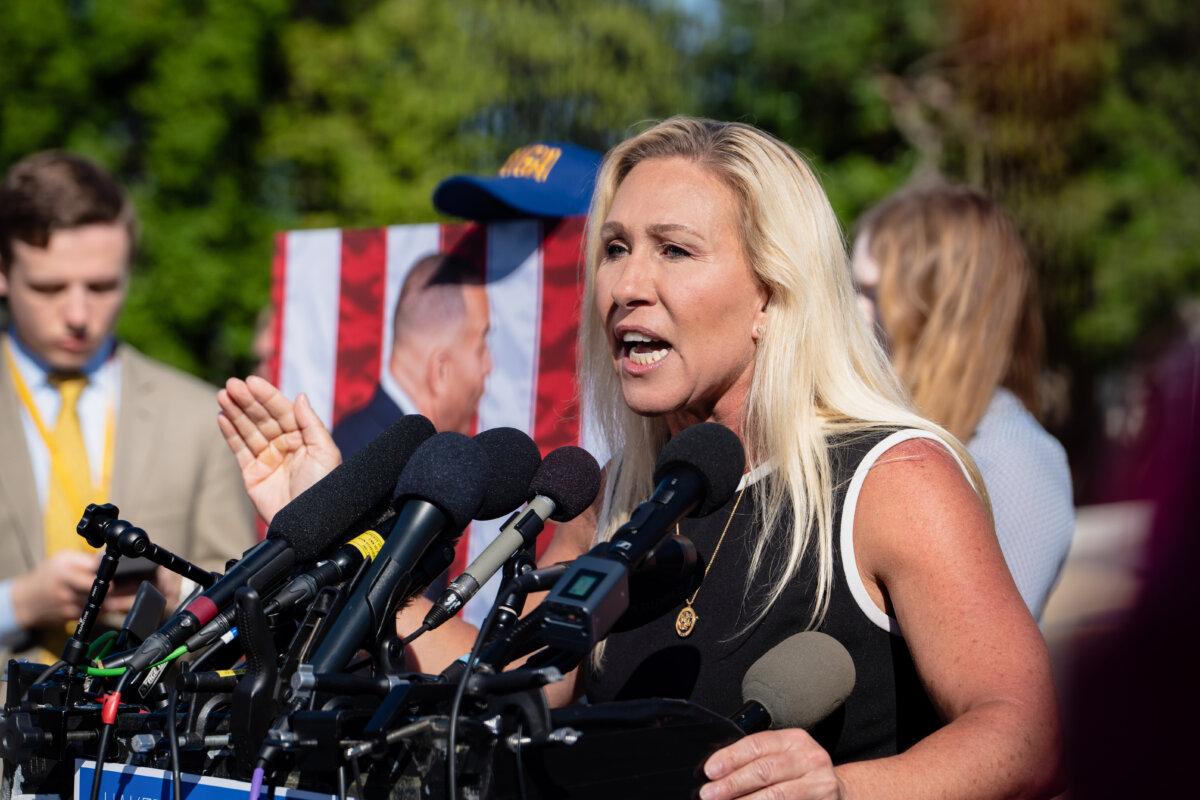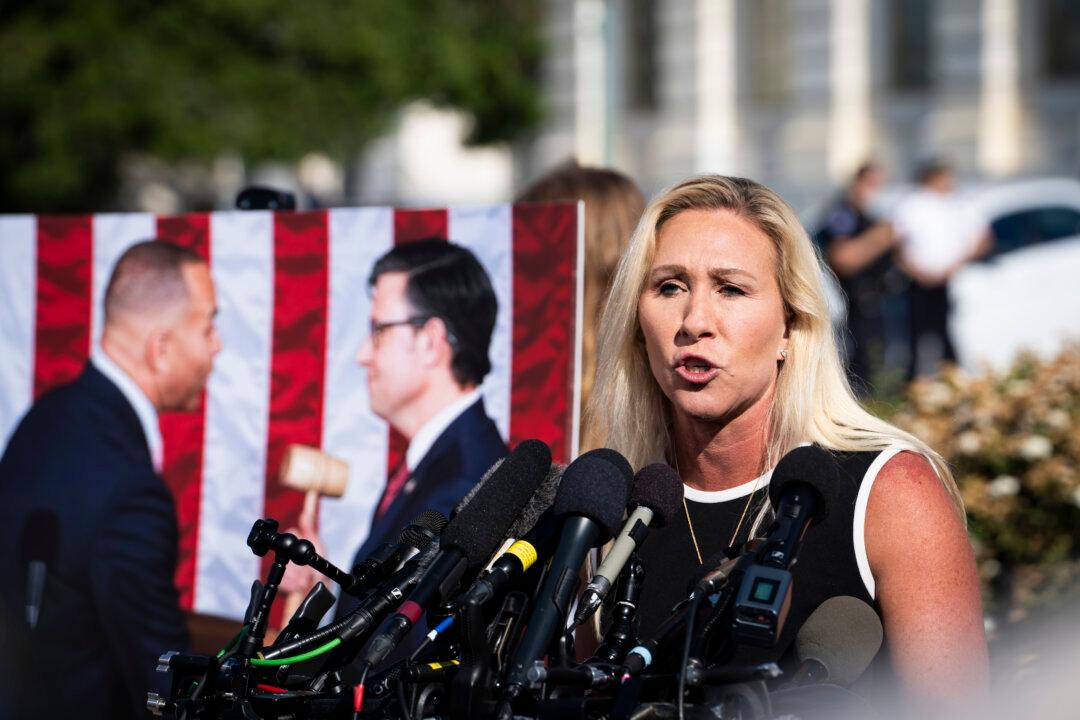Rep. Marjorie Taylor Greene (R-Ga.) announced yesterday that she will force a vote on a measure to oust House Speaker Mike Johnson (R-La.) next week.

Rep. Marjorie Taylor Greene (R-Ga.) speaks during a press conference about next week’s motion to vacate House Speaker Mike Johnson (R-La.) in Washington on May 1, 2024. Madalina Vasiliu/The Epoch Times





